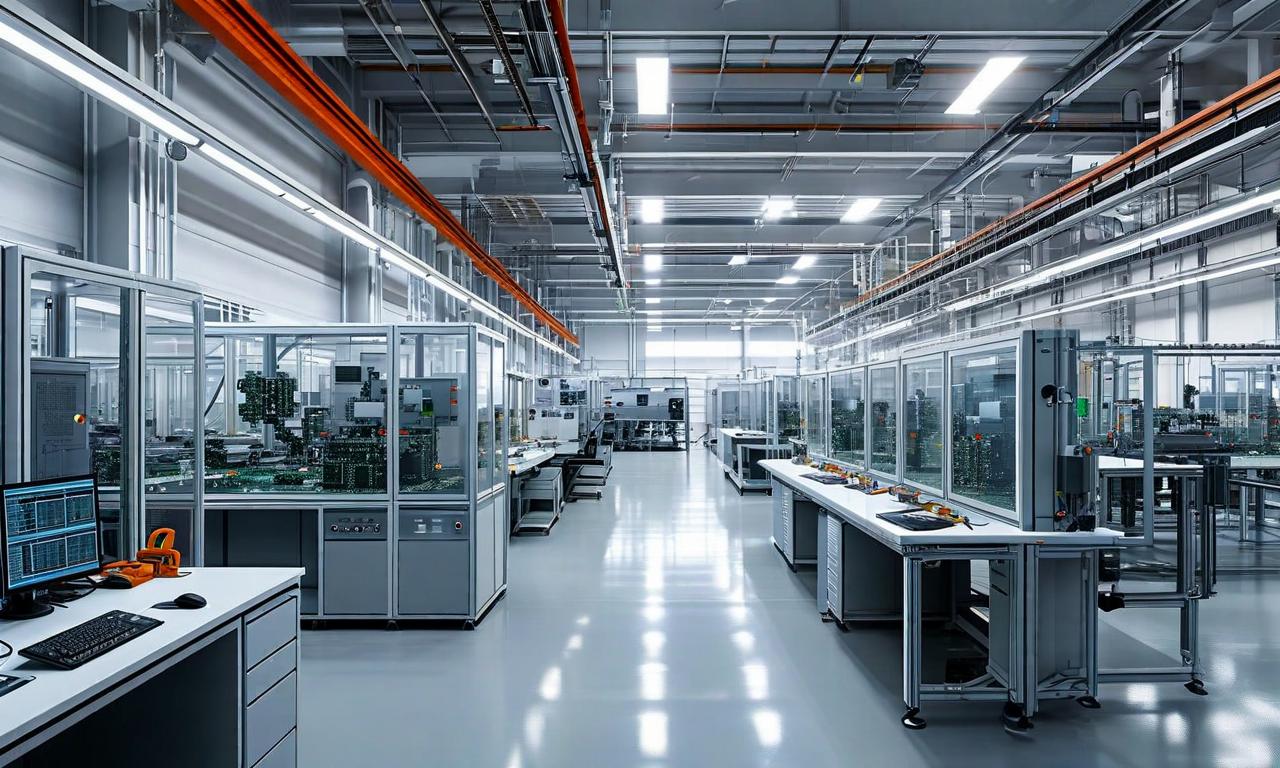Auto Sector Poised for Boost as Nomura Predicts Major Gains from Expected GST Cuts
Nomura forecasts significant benefits for Indian auto companies following anticipated GST reductions. Mahindra & Mahindra, Maruti Suzuki, and Ashok Leyland are expected to gain the most. The cuts could increase automotive sales by 10-15%, with four-wheeler manufacturers benefiting more than two-wheeler makers. Margin improvements of 100-150 basis points are expected for OEMs. Auto component suppliers like Uno Minda Corp, Motherson Sumi Wiring India, and Sansera Engineering are also set to benefit. However, the EV market may face challenges due to a widening price gap with traditional vehicles. The BSE Auto Index has already gained nearly 20% in FY26, outperforming the Sensex.

*this image is generated using AI for illustrative purposes only.
The Indian auto sector is bracing for a significant transformation as Nomura, a leading brokerage firm, forecasts substantial benefits for key players following anticipated GST reductions. The analysis highlights Mahindra & Mahindra, Maruti Suzuki India, and Ashok Leyland as the companies with the most to gain from these tax cuts.
Expected Impact on Demand and Pricing
Nomura's report suggests that the GST cuts could create a multiplier effect of 1.0-1.5 on demand, potentially leading to a 10-15% increase in overall automotive sales. This surge is expected to be driven by sizeable price reductions on popular models across various segments:
- Maruti Suzuki: Wagon R
- Mahindra: Bolero
- Hyundai: Brezza, Creta, and XUV700
Key Beneficiaries in the Four-Wheeler Segment
The four-wheeler manufacturers are positioned to reap more significant benefits compared to their two-wheeler counterparts. Maruti Suzuki and Mahindra & Mahindra stand out with their substantial exposure to the small car segment:
| Company | Exposure to Small Car Segment |
|---|---|
| Maruti Suzuki | 68% |
| Mahindra & Mahindra | 52% |
This positioning is likely to give these companies a competitive edge in capitalizing on the expected demand surge.
Two-Wheeler Segment: A Mixed Bag
While the entire auto sector is set to benefit, the two-wheeler segment faces a unique challenge. The implementation of anti-lock braking systems is expected to erode approximately 50% of the benefits from GST cuts, potentially limiting the positive impact for two-wheeler manufacturers.
Financial Implications for Auto Companies
Nomura estimates that the GST reductions could lead to significant financial improvements for auto manufacturers:
- Margin improvement: 100-150 basis points expected for all OEMs (Original Equipment Manufacturers)
Auto Component Suppliers Set to Gain
The ripple effect of increased demand is expected to benefit auto component suppliers as well. Companies well-positioned to capitalize on this trend include:
- Uno Minda Corp
- Motherson Sumi Wiring India
- Sansera Engineering
These suppliers are anticipated to experience volume growth and improved pricing power as a result of the sector's overall boost.
Potential Setback for Electric Vehicles
While the GST cuts are largely positive for the traditional auto sector, they may present a challenge for the electric vehicle (EV) market. The price gap between EVs and internal combustion engine vehicles is expected to widen, potentially delaying widespread EV adoption by two to three years.
Market Reaction and Current Sales Trend
The auto market is already reacting to the anticipation of GST cuts, with sales experiencing a substantial decline. This trend suggests that potential buyers are postponing their purchases in expectation of better prices following the tax reductions.
Recent Performance of Auto Stocks
The BSE Auto Index has gained nearly 20% in FY26, significantly outpacing the Sensex's 5.5% rise. Eight auto stocks including Hyundai Motor India, Bosch, UNO Minda, Hero MotoCorp, TVS Motor, Ashok Leyland, MRF, and Mahindra & Mahindra have rallied between 25% and 50%.
Sector Financial Performance
The sector posted 7% year-on-year revenue growth in quarterly results, with profits growing 10% despite margin pressures from rising input costs. Two-wheeler exports increased 23% while passenger vehicle exports grew 34%. Domestic two-wheeler sales declined 2%, but tractor and three-wheeler volumes rose 9% and 10% respectively.
Factors Supporting the Rally
The rally in auto stocks is supported by export growth, rural demand revival, premiumization trends, and potential GST rate cuts on vehicles.
Analyst Recommendations
Axis Securities has issued buy recommendations for:
- Hero MotoCorp (target Rs 5,220.00)
- Bajaj Auto (target Rs 9,360.00)
- Ashok Leyland (target Rs 135.00)
- Sansera Engineering (target Rs 1,500.00)
As the auto sector awaits official confirmation of the GST cuts, the industry remains poised for a potential resurgence in demand and profitability. However, the actual impact will depend on the final implementation of the tax reductions and how quickly consumers respond to the new pricing landscape.




























